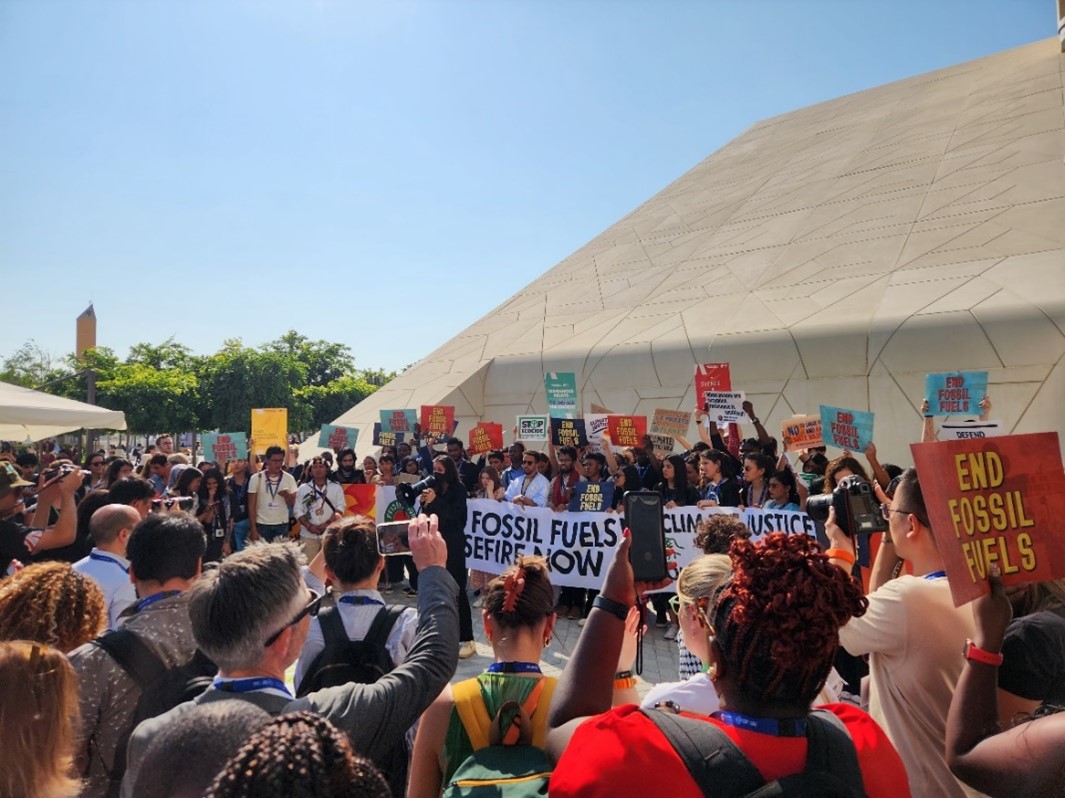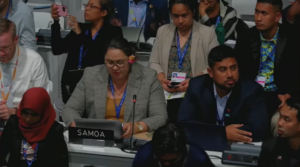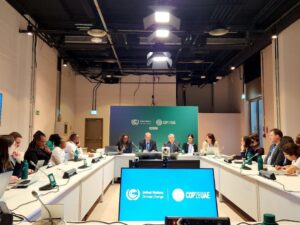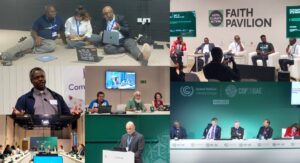
For World Earth Day – we spotlight Pedro Walpole SJ, the research director from the Institute of Environmental Science for Social Change (ESSC), a research institute in Quezon City, Philippines. He shares with us his insights and reflections on COP28 and ponders what needs to be done at global levels to tackle the climate crisis and what needs to be the driving force to get there.
The 28th Conference of the Parties (COP28) convened by the United Nations Framework Convention on Climate Change (UNFCCC), held last 30 November – 13 December at Dubai, United Arab Emirates, concluded with unsatisfactory gains. Government Party delegates and participants returned to their home countries while grappling with COP28 outcomes – proudly dubbed as the UAE consensus by COP28 President Dr. Sultan Al Jaber – amid exacerbating climate vulnerabilities.
The entirety of the climate summit proceeded with high stakes and humanity’s existence hanging in the balance. Representatives of the Intergovernmental Panel on Climate Change (IPCC) reiterated that phasing out of fossil fuels is the only way to keep 1.5 alive, yet the Global Stocktake decision text (the most critical outcome that will inform the next round of Nationally Determined Contributions or NDCs due in 2025) failed to reflect this urgency. The text is rife with loopholes such as “transitioning away from fossil fuels,” “transition energy systems”, and “transition fuels”. In the closing plenary, several developing countries alluded to developed countries blocking Parties from reaching a full phaseout agreement.
Yet, there were moments of light.

Anne Rassmussen, Chair of AOSIS
In Laudate Deum (LD), Pope Francis called for those joining COP28 to be “strategists capable of considering the common good and the future of their children, more than the short-term interests of certain countries or businesses.” (LD 60).
Many developing countries such as the Alliance of Small Island States (AOSIS) and Latin American countries spoke out with integrity that the agreement does not respond to climate realities in the Global South.
Anne Rasmussen, Samoa lead negotiator and AOSIS chair, emphasized during the closing plenary how COP28 failed in this.
“We have come to the conclusion that the course correction we have needed has not been secured. It is not enough to reference the science and then ignore what the science is telling us we should do.”
UN Secretary-General António Guterres, Former US Vice President and climate activist Al Gore, and Mary Robinson, former President of Ireland and Chair of The Elders, politically confronted the limitations of the COP process and spoke out in several occasions how the final decision text only achieved the bare minimum.
It is worth nothing that during COP28, the UNFCCC sought to sustain political integrity in the face of conflict with two wars raging close by. COP did not collapse into accusation and counter accusation between peoples, and nearly 200 countries were brought together.
In the final stretch of COP28, it was also decided that COP29 will be held in Baku, Azerbaijan, another petroleum nation on 11-22 November 2024. Concerns were raised over this decision given Azerbaijan’s poor track record on human rights and civil liberties.
With all these shadows, COP28 and now COP29 being held in petroleum nations highlights constraints of these countries on the overall environmental disasters that are mounting. The planet will most likely breach the 1.5 tipping point by 2030 if the world continues proceeding with business-as-usual. This reinforces the need for civil society to stay engaged and united post-COP28 and beyond.
In 2024 to 2025, countries will be preparing a new set of Nationally Determined Contributions (NDCs) that outlines national commitments to reduce emissions and adapt to climate change impacts.
This is key for civil society to participate in to ensure that local vulnerabilities are put at the heart of NDC formulation. COP30 to be held in Brazil on 10-21 November 2025, and will mainly tackle the New Collective Quantified Goal on Climate Finance (NCQGCF) due to the repeated failure of Global North countries in meeting the USD 100 billion annual goal. COP30 will be a key for civil society to lobby for the inclusion of Indigenous peoples, women, and youth, in high-level discussions.
Looking onward

COP31 in 2026 will be crucial with Heads of State set to sign another legally-binding international treaty, and this marks 10 years since the 2015 Paris Agreement was ratified. The conference will possibly be held in Australia, and Pacific Island Nations need to be at the frontline with ocean-based climate action more deeply integrated in the discussions.
Throughout the entirety of the process, we see the faith voice gaining traction in international discussions. The Vatican State is now an official Party that can engage in the negotiations. In COP28, faith groups came together and now, a Catholic Actors Network is being formed to sustain engagements in future international processes guided by the principles of integral ecology.
The Catholic Church is recognizing the value of engaging in such international relations. The Holy See delegation led by the Apostolic Nuncio held regular dialogues with Catholic groups at COP28 to seek their inputs on the negotiation texts. One of the main points that the Holy See highlighted is the role of education as a cross-cutting theme and its important role in ecological care.
Pope Francis in his address (delivered by Cardinal Pietro Parolin on his behalf) during the World Climate Action Summit emphasized this point.
“Climate change signals the need for political change… In this regard, I would assure you of the commitment and support of the Catholic Church, which is deeply engaged in the work of education and of encouraging participation by all, as well as in promoting sound lifestyles, since all are responsible and the contribution of each is fundamental.”

Eco Jesuit partners at COP28
Jesuits participated in COP28 and represented various institutions. The presence from the Jesuit Conference of Africa and Madagascar (JCAM) was particularly strong as they sought to bring forward climate justice concerns in the region from a faith and community-based perspective. The statement Towards COP28: Committing to a South-North Climate Justice Advocacy launched by the Ecojesuit Network and the Social Justice and Ecology Secretariat (SJES) brought forth a deepened commitment and awareness throughout the Society on the significance of engaging in COP.
Laudate Deum emphasized the growing presence of faith in the COP process and brought further awareness on its importance. This will influence possibilities of the social processes in COP. Pope Francis reminded all people of faith of the shared responsibility to care for creation.
“I ask everyone to accompany this pilgrimage of reconciliation with the world that is our home and to help make it more beautiful, because that commitment has to do with our personal dignity and highest values.” (LD 69)
We are faced with a significant challenge to effectively uplift local realities in international discussions. COP is an important space for faith groups to remain engaged in to better understand international relations in the context of the common good.
photo credits: Criselle Mejillano

